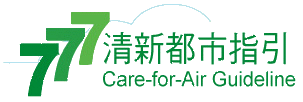
Care for the Air, Together
Over the years, Hong Kong's deteriorating air quality has caused
great concern among the general public, tourists and investors. The Hong Kong General
Chamber of Commerce and the Hong Kong Business Coalition on the Environment are therefore
leading a business sector effort - Project CLEAN AIR. Besides promoting a Clean Air Charter among the business sector, we have developed this
"7-7-7 Care-for-Air" Guideline for
the general public to take immediate, practical steps to contribute to improving air
quality at home, at work and while travelling. |
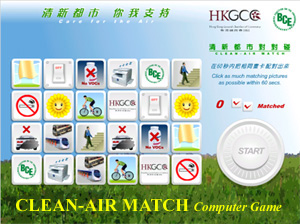 |
| |
|
Knowing more about Air Pollution
Air pollutants may come from factories, vehicles, power plants and
many other sources. The most common air pollutants are sulphur dioxide (SO2), carbon
monoxide (CO), nitrogen oxides (NOx), suspended particulates (SP), volatile organic
compounds (VOCs) and ozone (O3). They are known to cause a number of health ailments
ranging from respiratory disorders to cancer.
|
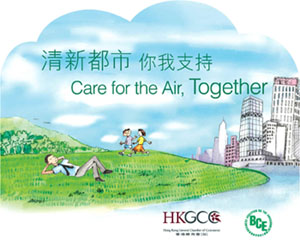 |
We encourage everyone to implement the "7-7-7
Care-for-Air" Guideline,
especially when the Air Pollution Index exceeds100.
The Air Pollution Index (API) ranges from 0 to 500, in five bands. An
Index of 100 or higher means one or more pollutants may pose immediate health effects to
certain susceptible members of our community, and generally healthy individuals may also
notice some discomfort.
Air Pollution Index |
Air Pollution Level |
201-500 |
Severe |
101-200 |
Very High |
51-100 |
High |
26-50 |
Medium |
0-25 |
Low |
| Make That Little Effort at Home ¡@ |
| 1. |
Switch off unnecessary domestic appliances - make use of natural
light and ventilation. |
| 2. |
Don't use standby mode - turn off appliances completely when not in
use. |
| 3. |
Set a comfortable room temperature - don't over cool or over heat. |
| 4. |
Avoid using the tumble drier. |
| 5. |
Don't use products containing VOCs, e.g. paints, hair and personal
care sprays, etc. |
| 6. |
Reduce direct emissions from cooking , e.g. thaw food in the fridge
before cooking, postpone your BBQ, etc. |
| 7. |
Don't smoke |
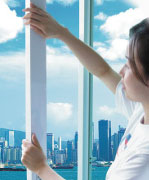
| Make That Little Extra Effort at Work |
| 1. |
Activate "sleep" mode in office equipment during the
office hours, including photocopiers, scanners and printers. |
| 2. |
Don't use standby mode after working hours - turn off unnecessary
equipment completely including the computer. |
| 3. |
Minimize photo-copying to reduce ozone emissions. |
| 4. |
Wearing clothing that keeps you comfortable in the office. |
| 5. |
Make conference calls or use other electronic media to reduce
travelling for business meetings. |
| 6. |
Adopt flexible working hours to reduce emissions caused by traffic
congestion. |
| 7. |
Use products with zero or low VOCs for renovations. |
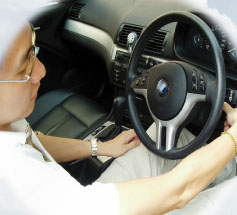
| Make That Little Extra Effort on the Road |
| 1. |
Reduce unnecessary travelling. |
| 2. |
Use the stairs wherever possible to save energy. |
| 3. |
Walk or ride a bicycle for short journeys. |
| 4. |
Use public transport. |
| 5. |
Plan your travel or carpool to avoid single-passenger
car trips. |
| 6. |
Stop using vehicles that emit black smoke. |
| 7. |
Don't leave the engine idling |
Download
7-7-7 Leaflet
|









